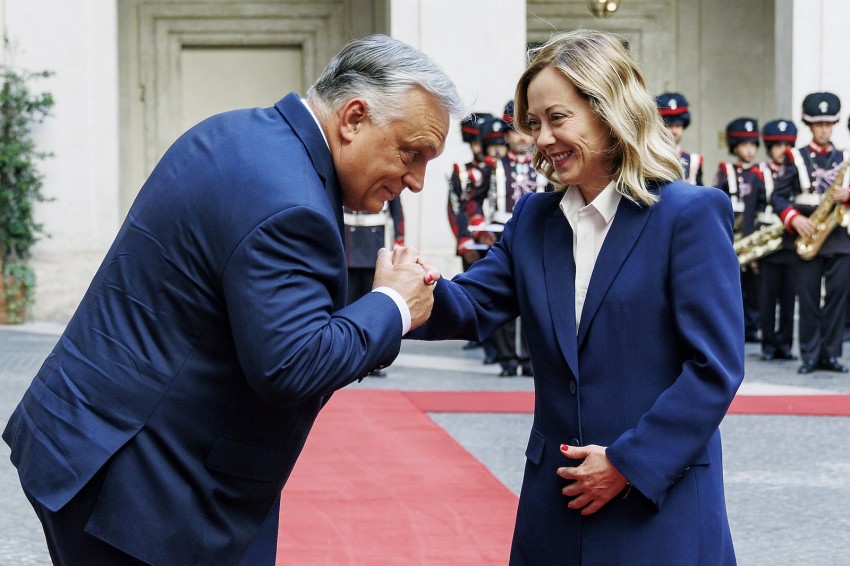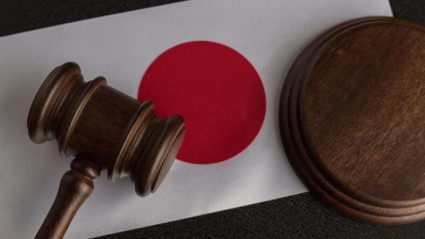There’s a widespread view that populism is on the rise, from the United States and Turkey to India and Hungary.
What is fueling this movement?
Populism is a political ideology that positions “the people” as a morally just, good group in society, in contrast with other people who are elitist and out of touch with society. Politicians such as former President Donald Trump have used this general approach to help propel their rise to power – and maintain their popularity among their supporters.
Trump, for example, described his political campaign in June 2024 as an “epic struggle to liberate our nations from all of the sinister forces who want to destroy them.” These “sinister forces” typically include everything from the media and international organizations to mainstream science and immigrants.
And Viktor Orbán, the populist prime minister of Hungary since 2010, often blames international groups such as foreign nonprofits for interfering in Hungarian politics and acting against the country’s interests.
The European Parliament determined in 2022 that Hungary could no longer be considered a democracy.
In its most radical, authoritarian form, populism poses a threat to democracy. It polarizes societies and erodes trust in experts.
But populist leaders still hold appeal, as they promise to return power to the people.
Yet they often deliver something very different from what they promise. They tend to worsen problems such as gender and ethnic inequality, without addressing the gap between the rich and the poor.
I have dedicated much of my career to analyzing populist movements, both as a politician serving in the Hungarian Parliament in opposition to Orbán’s regime and now as a scholar.
This unique experience has taught me one thing: Protecting democracy from populism requires first understanding its root causes.
What’s behind populism
Many journalists and political scientists view populism as a “cultural backlash” of conservative white men who fear the loss of their privilege in a diversifying world.
Immigration, race and religion are three issues that are often central to many populists’ politics. There are also economic factors such as a poor economy, international trade, industrial robots and artificial intelligence that some experts think also contribute to the rise of populism.
This is because the growth of artificial intelligence, for example, has led to the reduction of stable jobs in sectors such as manufacturing, which once gave working-class people a pathway to social mobility.
Many pundits and scholars still question whether the economy plays a significant role in populism. This argument takes various forms, but it typically boils down to statements like this one, made by a prominent political scientist about the 2016 U.S. presidential election: “Status threat, not economic hardship, explains the 2016 presidential vote.”
In other words, the 2016 presidential vote was influenced by white voters’ fears about losing their dominant status in society rather than because of their financial struggles – at least according to this argument.
It’s the economy
My recent research shows a different source of anxiety behind growing support for populism: people’s concerns about economic insecurity are a crucial factor driving populism in Europe, North America and Latin America.
For example, Americans who lost their jobs in the manufacturing industry in the 2010s were especially likely to abandon the Democratic Party and vote for Trump in 2016.
There is evidence that people’s anti-immigration attitudes are also fueled by their anxiety about their own jobs.
Research also shows that Europeans who lost their jobs or whose earnings were reduced because of competition with low-wage immigrant workers, for example, were more likely to feel threatened by globalization. They were also especially likely to embrace nationalism and vote for populist right-wing candidates throughout Western Europe.
Populist voters in the U.S.
Still, research shows that not all populist voters can be lumped under the same umbrella. Populist voters are a diverse group with various motivations and concerns.
For example, artificial intelligence threatens jobs more in the U.S. and in Western Europe than in Eastern Europe, making Americans and Western Europeans more concerned about this issue than Eastern Europeans.
Race is another factor. Some white voters facing financial hardship may feel as if immigrants and people of color are responsible for taking the available jobs – and are to blame for their economic woes.
Populism is not just about conservative white men, however, despite the popular support Trump holds among many in this group. For example, Democratic politicians in the U.S. have increasingly struggled to win the support of working-class voters without a college degree, including a growing number of Black voters.
Black voters still generally vote for Democrats. But the Democratic Party has seen about a 28 percentage point decrease in Black voters between 2020 and 2024. Most of them switched to become Republicans.
This voter realignment has been occurring since 2008. When Trump was elected in 2016, he not only increased his party’s support among the white working class by four percentage points from GOP presidential nominee Mitt Romney’s 2012 defeat, he also increased support among Black working-class voters by the same amount. This shift suggests that the Democrats have a working-class problem and not a white working-class problem. Economic factors, rather than just racial identity, are a major factor driving voters away from the Democratic Party.
Not all populist voters are extremists
Many media outlets tend to focus on core populist voters, who are masters of causing outrage with what one populism scholar calls “bad manners.” In this context, that means using inflammatory language or making politically incorrect statements, among other tactics, to draw attention to their cause.
The most successful populist political movements in places such as Italy and Poland, however, have grown by appealing to voters concerned with bread-and-butter issues. They combine the core group of populist voters, who are motivated by culture and racism, and an outer group of voters who are not primarily motivated by these issues.
Finally, voters’ support for populist leaders also depends on how non-populist, mainstream politicians appeal to them. Inclusive socioeconomic policies, such as expanding unemployment insurance, for example, can help stave off a populist surge.
The way ahead
There is no one-size-fits-all answer to the challenge of populism. For example, job guarantee programs help provide stable work, reducing the economic insecurity that often fuels populist sentiment.
In an economy characterized by gig work and people frequently moving from one job to another, portable benefits that workers carry from job to job – giving them continuous access to health care, retirement savings and other benefits – may help alleviate the anxieties that drive people to populism.
Boosting affordable housing and controlling rents can also promote more stable living conditions.
I think countering right-wing populism demands a concerted effort to tackle the economic insecurity that fuels this global phenomenon. The path forward may be challenging, but the alternative, a world where democracy is eroded and societies are polarized, is even more frightening.
Gábor Scheiring is an Assistant Professor of Comparative Politics at Georgetown University Qatar.
The Conversation is an independent and nonprofit source of news, analysis and commentary from academic experts.
© The Conversation














16 Comments
bass4funk
Why would anyone want it weakened, it’s the opposite it’s getting stronger and the powers that be (mostly liberal) cannot put the genie back in the bottle and that’s a good thing.
dagon
The article skirts the central role of the neo-liberal 'consensus' beginning with Reagan and Thatcher and continuing with Clinton and Bush and Obama had in disenfranchising many.
Reagan promised to bring prosperity and brought greater inequality while starting to tax Social Security benefits. Clinton cut welfare and promoted free trade deals promising more great paying jobs but hollowed out American manufacturing and replaced it with unstable service jobs. Bush and Obama bailed out banks and left workers to suffer the consequences of recession.
With the marginalization of the real left all that was left was the unhinged delusion of populism and nationalism.
https://truthout.org/articles/neoliberalism-paved-the-way-for-authoritarian-right-wing-populism/
bass4funk
With the exception of Obama, the man thought he could do what Reagan did and transform the nation into a progressive atheist one and that failed badly.
He absolutely did, heavily influenced me and made a lot of Americans wealthy.
No, he pushed to limit the size of government and to a degree Clinton as well, Obama expanded it, ballooned the Federal government.
True, he also allowed China to enter the WTO which the world to this day never recovered from.
With Bush, you can blame Chris Dodd and Barney Frank.
So that’s a bad thing? The Dems tried and failed, this is the new reality.
FizzBit
What’s behind populism
LOL
Just trash talk and lies.
I wonder how Gábor Scheiring, an Assistant Professor of Comparative Politics at Georgetown University Qatar is gonna feel when Trump wins the election partly from a “cultural backlash” of black men and women who fear the loss of their privilege and jobs in Bidens illegal immigrant importation world.
dagon
Illogical non sequitur rhetoric is also a feature of rightist populism, on display here.
FACT: The US has never had an atheists president.
Wrong again.
FACT: The taxation of Social Security began in 1984 following passage of a set of Amendments in 1983, which were signed into law by President Reagan in April 1983.
He can't evade responsibility like he has often done.
https://www.npr.org/2008/10/03/95336601/bush-signs-700-billion-financial-bailout-bill
Having little relation to reality is a feature of rightist populism too and creating imaginary enemies.
bass4funk
You mean, you don’t like the facts.
They did, Barack Hussein Obama
No, right again.
https://www.forbes.com/sites/charleskadlec/2012/01/30/president-obamas-blueprint-for-expanding-government-power/
You are right, Frank can’t.
https://youtu.be/QRicAsGZavs?si=qlT-aMiC-d5a8NKI
Looking at the polls and recent setbacks the left is now slowly coming to grips with shows their grasp on reality is now coming through the dense fog, finally.
Moonraker
Of course, those who pay the piper call the tune. Follow the money, as all the cynics say. By now capital is smart enough to know its marks extremely well. Just like it financed Hitler, it finances the populists who tell the ignorant people what they want to hear and they, having few critical skills, end up voting for capital in some guise or other (Don't like billionaires? Hey vote for a billionaire conman) and often, in the end, against their own interest. It's decisive proof that humans are totally dumb.
wallace
Populism reduces politics to the gutter. The lowest common denominator.
plasticmonkey
Nonsense. Obama has professed his Christian faith numerous times.
bass4funk
We continue to hear this from the establishment and look how much they screwed up the world. I think Populism is the genie that will never allow itself to be put back into a bottle. Hope to see more of it.
bass4funk
If you want to believe that, go right ahead, I don’t.
kohakuebisu
This article reinforces the incorrect belief that there is and can only be right wing xenophobic populism (Orban etc) which is likely to lead to Mussolini types.
The original "populists" (in the US in the late 1800s) were mildly left-wing and more akin to trade unions demanding things like non-slave wages, non slave working hours, health care, education for their children etc. Stuff that right wing populists will deny people if they can get away with it, basically because they are part of the Establishment and only pretend to be a challenge to it. Trump is not part of the Clinton set and makes a populist appeal as being so, but he is still definitely part of the Establishment. Boris Johnson could hardly be less of an Establishment figure. Johnson made various high-profile populist promises, such as "leveling up" poor parts of the country. This was probably the biggest of his many lies.
plasticmonkey
"the precepts of Jesus Christ spoke to me in terms of the kind of life that I would want to lead—being my brothers' and sisters' keeper, treating others as they would treat me. And I think also understanding that Jesus Christ dying for my sins spoke to the humility we all have to have as human beings, that we're sinful and we're flawed and we make mistakes, and that we achieve salvation through the grace of God. But what we can do, as flawed as we are, is still see God in other people and do our best to help them find their own grace. That's what I strive to do. That's what I pray to do every day. I think my public service is part of that effort to express my Christian faith."
— Barack Obama, September 27, 2010
“Get even with people. If they screw you, screw them back 10 times as hard. I really believe it.”
--Donald Trump, 2011
I know who you believe is the real Christian.
Flabbergasting.
plasticmonkey
You're gunning for a kind of fascism.
TaiwanIsNotChina
I think Populism must be caused by poor education. If people knew of the failures of fascist and communist states, they wouldn't sign up for that nonsense.
TaiwanIsNotChina
It's unfortunate there hasn't been an atheist president as it is time we had people in that position who understood the logical problems of christianity like the founding fathers did.